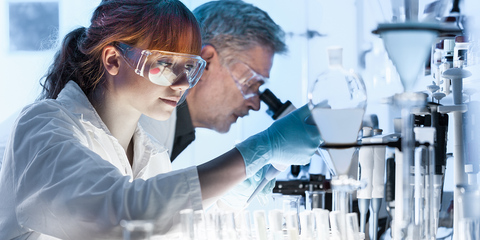ANTIBIOTICS DAMAGE YOUR GUT AND CAN LEAD TO DEGENERATIVE BRAIN DISEASES
The medical community used to think that a combination of bad genes and bad luck caused degenerative brain diseases like Alzheimer’s and Parkinson’s. More and more research is starting to point to concrete causes for these conditions. A new study linked increased use of antibiotics with the development of Parkinson’s disease up to 15 or more years later.
Finnish researchers combed through the medical history of people who were diagnosed with Parkinson’s disease between 1998 and 2014, and then examined the history of antibiotic purchases in the years prior.

They found that increased antibiotic use, especially the use of strong broad-spectrum antibiotics, and the types of antibiotics effective against anaerobic microbes, were associated with Parkinson’s disease years later. The classes of antibiotics with the highest risk are:
- Anti-anaerobics and tetracyclines taken 10 to 15 years before diagnosis
- Sulfonamides and trimethoprim taken 1 to 5 years before diagnosis
- Anti-fungal medications 1 to 5 years before diagnosis
ANTIBIOTICS AND THE GUT.
Strong, broad-spectrum antibiotics, have one job: destroy all bacteria in its path. These medicines take no prisoners. Everything goes — friendly microbes, unfriendly microbes, and everything in between. The bacteria in your gut that help you digest food and fight infections do not get a pass — antibiotics take those out, too.
That’s why a common side effect of antibiotics is diarrhea and digestive upset. One of the first signs your gut is lacking friendly microbes is that you’re not digesting your food properly.
ANTIBIOTICS AND THE GUT-BRAIN AXIS.
What does this have to do with Parkinson’s, a brain disease? You may have heard about the gut-brain axis, which is the line of communication between your gut and your brain. It’s a two-way street that links your thinking, memory, and emotions to your intestinal functioning.
Recent evidence points to a disrupted gut microbiome as a main source of Parkinson’s. You can read studies here, here, and here to get a sense of how the two are connected.
SHOULD YOU AVOID ANTIBIOTICS AT ALL COSTS?

The short answer is, no.
When you have a severe infection, antibiotics can lead to a swift recovery and prevent irreversible organ damage and even death. These medicines have their time and place, and we are lucky to have them available when we need them.
Antibiotics cause problems when they are over-prescribed. A lot of patients will come to the doctor with a cold expecting to leave the office with a prescription, even though antibiotics are useless against viruses. Some doctors prescribe more responsibly than others.
There was a time when the medical community thought a healthy body was a sterile body, with no microbes in it or on its surface. Now, we know that that’s not the case. Without our microbiome, we would have some noticeable problems, like trouble digesting food, deficiency of important brain neurotransmitters, and reduced immunity, among others. We need our friendly bugs, which means we need to use antibiotics only when absolutely necessary.
WHAT TO DO WHEN YOU HAVE TO TAKE ANTIBIOTICS.
So, what do you do when there’s no way around a course of antibiotics? First, there is always the option to discuss things in depth with your doctor. Ask your trusted medical professional if there are alternatives. What happens if I wait? Is there a gentler antibiotic I can take? Can I try x or y first?

Then, if there’s no other way, pay extra attention in the following months getting your gut back into shape. If you give your gut some extra love, you can potentially avoid the long-term microbiome disruption that leads to disability and disease. Here are some steps to consider.
During your course of antibiotics:
- Ask your doctor about taking s. Boulardii, which is a gut-friendly fungus in a capsule. Antibiotics can’t kill fungi, so it can thrive and keep you somewhat level while everything else is being killed off.
- Ask your doctor which probiotic strains would be most beneficial to take in between doses. They won’t last long if you’re in the middle of your course, but some people report less digestive upset when they take a probiotic in between antibiotic doses.
After your course of antibiotics:
- Ask your doctor which probiotic strains are recommended to replenish lost gut bacteria, and ask for guidance on dosing. Sometimes your doctor will green-light you to take more than the dose on the label in a post-antibiotic situation.
- Eliminate sugar and reduce your fruit intake. Sugar, even the sugar that comes from fruits, feeds a strain of yeast, candida albicans, that has a tendency to go haywire. If you’re going to have a sweet treat, wait until your gut has had time to heal. Better yet, reach for treats sweetened with monk fruit, which won’t feed yeasts.
- Avoid alcohol. After antibiotics, you’re detoxing a lot. Your body is getting rid of the by-products of the infection itself, you’re detoxing the active and inactive ingredients of your medicine, and the bacteria you killed off releases by-products when they die, which slow you down. Be kind to your liver while it’s working hard.
- Take vitamin C. Vitamin C wakes up your cells that produce collagen, which strengthens the lining of your gut. Wiping your friendly bacteria away may have left you with weak spots in your gut lining, which could lead to lots of problems associated with intestinal permeability. Give your body what it needs to rebuild and restore. You may opt to sip on bone broth or mix collagen peptides into your smoothies as well.
- Eat a variety of foods. A healthy microbiome is a diverse microbiome, and a more varied diet leads to diversity of microbes in your gut.
JAN 21, 2020 · LAKANTO .